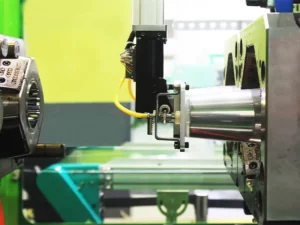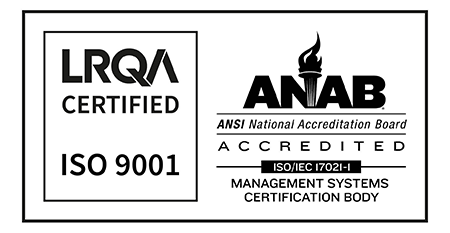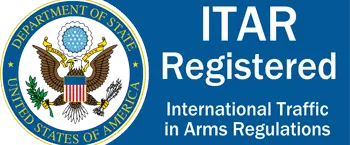As companies strive to maintain quality, two terms often emerge: Certificate of Compliance and Certificate of Conformance. While they may sound similar, they serve distinct purposes and carry different implications, so what is the difference between Certificate of Compliance and Conformance? In this article, we unravel the disparity between these certificates, explore their respective benefits, and shed light on their importance in the manufacturing landscape.
Certificate of Compliance (CoC):
A Certificate of Compliance is a document issued by a regulatory body or authorized third party, verifying that a product meets specific regulatory standards or requirements. It attests that the product complies with applicable laws, regulations, or industry standards, ensuring safety, quality, and environmental sustainability.
Certificate of Conformance (CoCf):
On the other hand, a Certificate of Conformance is a declaration issued by a manufacturing company, confirming that a product has been produced in accordance with specified requirements and standards. It serves as evidence that the product meets the agreed-upon specifications, quality standards, and contractual obligations.
Differentiating Between the Two

The primary difference between Certificate of Compliance and Conformance lies in their scope and authority:
- Scope: A Certificate of Compliance focuses on regulatory compliance, verifying that a product meets legal or industry-specific requirements. In contrast, a Certificate of Conformance pertains to the product’s adherence to agreed-upon specifications, quality standards, and contractual obligations.
- Authority: A Certificate of Compliance is typically issued by a regulatory authority or authorized third party, while a Certificate of Conformance is issued by the manufacturing company itself.
Benefits and Uses
Certificate of Compliance:
- Regulatory Compliance: The primary benefit of a Certificate of Compliance is ensuring that products meet legal and regulatory requirements. This is particularly crucial in industries with strict regulations, such as security and defense related services, healthcare, automotive, and aerospace.
- Market Access: Having a Certificate of Compliance facilitates market access by demonstrating that products meet the necessary regulatory standards, enabling companies to sell their products in various regions without encountering regulatory barriers.
- Consumer Confidence: It instills confidence in consumers, assuring them that the products they purchase meet established safety, quality, and environmental standards.
Certificate of Conformance:
- Quality Assurance: The foremost advantage of a Certificate of Conformance is assuring the quality and consistency of products. It verifies that products have been manufactured according to specified requirements, ensuring customer satisfaction and brand reputation.
- Contractual Obligations: It serves as documentation of compliance with contractual agreements between manufacturers and customers. This is particularly important in industries where precision and adherence to specifications are critical.
- Supply Chain Efficiency: By providing transparency and accountability in the manufacturing process, a Certificate of Conformance facilitates smoother supply chain operations. It enables companies to track and trace products, identify potential issues, and maintain quality control throughout the production process.
Importance in Manufacturing
Both Certificates of Compliance and Conformance play vital roles in the manufacturing ecosystem:
- Legal and Regulatory Compliance: Certificates of Compliance are essential for ensuring that products meet legal requirements and regulatory standards, safeguarding against legal liabilities and penalties.
- Quality Assurance: Certificates of Conformance are integral to maintaining quality and consistency in product manufacturing, fostering customer satisfaction and loyalty.
- Market Access and Competitiveness: Both certificates contribute to market access by demonstrating compliance with standards and regulations, enhancing competitiveness in the global marketplace.
What Industries Benefit from These Certificates?
The Certificate of Compliance and Certificate of Conformance are vital documents across numerous industries, ensuring that products meet specified standards and regulations. Some industries and companies that benefit from these certificates include:
- Medical Devices and Pharmaceuticals: Regulatory bodies such as the FDA (Food and Drug Administration) require strict adherence to quality and safety standards. Certificates of Compliance and Conformance provide assurance that products meet regulatory requirements.
- Security and Defense: In these industries, products must meet stringent safety and quality standards. Certificates of Compliance and Conformance verify adherence to specifications, ensuring reliability and safety in critical applications.
- Oil and Gas: Given the hazardous nature of operations in the oil and gas industry, compliance with safety and environmental standards is crucial. Certificates of Compliance and Conformance provide evidence of adherence to regulations.
- Construction and Building Materials: Manufacturers of construction materials and equipment often need certificates to demonstrate compliance with building codes and standards for safety and performance.
- Food and Beverage: In the food industry, certificates verify compliance with food safety regulations and standards, ensuring the quality and safety of products.
At ARRK North America, our dedication to serving diverse industries entails a meticulous approach to addressing their unique manufacturing requirements. Recognizing the distinct challenges inherent in various manufacturing processes, we provide tailored solutions encompassing Urethane Casting, Tooling and Injection Molding, custom 3D Printing, and more. Our adherence to strict guidelines guarantees the delivery of products of unparalleled quality and safety standards. Learn more with our blog content, such as, our commitment: top-quality low to mid-volume prototypes or niche luxury: low-volume auto parts with urethane casting.








